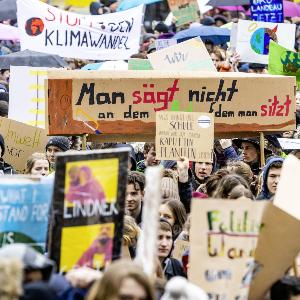
© IMAGO / Arnulf Hettrich
Lecture series on "How Education can Mitigate Climate Change"
In 2030 our world will be a different one. Scientists forecast that this present decade will witness a more pronounced change in the climate than any we have yet seen. Episodes of extreme weather of all kinds will become more common, the rate of biodiversity loss will increase, water resources will decline, harvests will become less secure and an increase in migration flows will inevitably follow. How humans react to global warming in the coming decade will decide whether or not our planet's climate can be returned to a stable state.
Education will have a major role to play in promoting the transformation of society that is required to tackle the issue effectively, giving future generations a fair chance to make the necessary adjustments in their turn. An online series of interdisciplinary lectures given by researchers at LMU and other experts in relevant fields will focus on possible ways of successfully responding to the challenge.
How do we know that global temperatures are increasing and that anthropogenic greenhouse gases are responsible for this phenomenon? This question can be answered without reference to a complex climate model. The elementary physics we learned at school is quite sufficient. The basic mechanisms were explained by luminaries such as Fourier, Kirchhoff and Boltzmann. That Earth's temperature is rising is an indisputable fact. Why then, in spite of ever more detailed models and exponentially growing computing power, do doubts as to the cause of global warming persist?
Professor Bernhard Mayer holds the Chair of Experimental Meteorology at LMU, and leads a research group on Remote Sensing and Radiation Transport. His research interests focus on the experimental study and theoretical modeling of the transport of radiation in Earth's atmosphere, and in particular on the role of clouds in this process.
For full details of the lecture series, together with information on how to register for the program, see the corresponding webpage. The lecture will be held in German.
